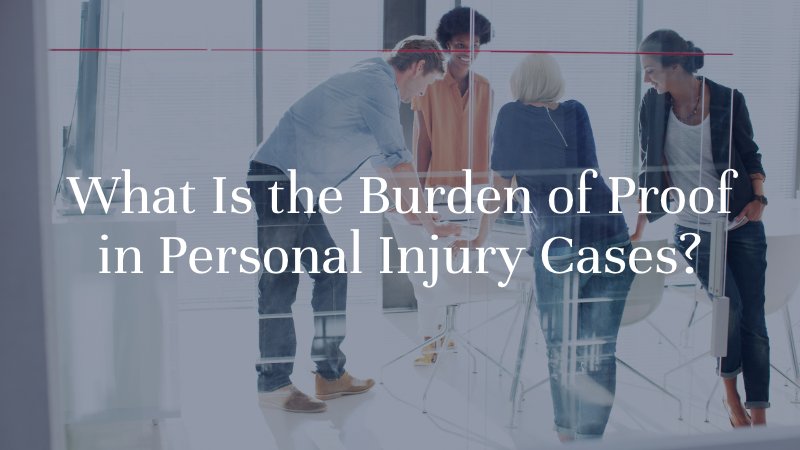What Is the Burden of Proof in Personal Injury Cases?
When someone suffers a serious preventable injury through no fault of their own and the injury causes economic and non-economic damages like medical expenses, lost income, and pain and suffering, they deserve compensation from the person or business responsible for the harm. Civil courts in Oklahoma offer injury victims legal recourse to recover their damages through a claim against the at-fault party’s insurance company with negotiations for a settlement or in civil court in a lawsuit. Either way, the burden of proof is on the injury victim. Before taking on the legal challenges of a personal injury claim for damages, it’s important to understand the burden of proof and how it impacts your case with the help of an injury attorney in Oklahoma City.
Burden of Proof in Civil Cases vs. Criminal Cases
In the criminal justice system, a person who breaks the law goes to criminal court where the burden of proof rests with the prosecution who must prove the charges against the defendant “beyond a reasonable doubt” for a guilty verdict. However, in civil courts that deal with personal injuries caused by careless or reckless actions that result in injuries, the burden of proof is much lower but falls on the injury victim’s (plaintiff’s) side. Typically with the help of an attorney, the injury victim must prove that it’s more likely than not that the at-fault party (defendant) caused the injury. This requires showing that the defendant failed to take reasonable measures to prevent causing harm to others. For example, a store owner has the reasonable duty to routinely inspect for safety hazards and promptly address them. Meeting the burden of proof would require showing that the property owner knew the hazard was present, failed to warn those lawfully on the property, and failed to correct the safety hazard in a timely manner.
If a driver causes an accident, the injury victim must prove that the driver failed to take the reasonable measure of following traffic laws. Make sure to speak with a car accident attorney in Oklahoma City if you were injured in a car accident.
How Do Personal Injury Attorneys Prove Liability?
Proving Liability for negligence-related injuries requires showing that an at-fault party had a duty of care to take reasonable measures to avoid injuries, they breached their duty of care by acting negligently, their breach of duty caused an injury to the victim, and the injury victim suffered economic and non-economic damages from the injury.
In some circumstances, the burden of proof of liability varies. For example, proving medical malpractice requires first establishing that a doctor/patient relationship existed, then that the doctor failed to meet the standards of care approved by the medical community, and their breach of that duty of care caused injury and damages to the injury victim. For an injury caused by a defective product, the requirement for proving a manufacturer’s strict liability is to show that a manufacturing error occurred, an error happened in marketing the product, or that the product’s design is inherently flawed.
How Can a Personal Injury Lawyer Help?
Proving liability for a personal injury requires a thorough investigation and documentation of proof of the at-fault party’s liability to make a compelling case. Although the burden of proof is lower in civil cases compared to the “reasonable doubt” requirement in criminal cases, an injury victim needs clear and concise evidence showing that it’s more likely than not that the at-fault party caused the injury. Often, when personal injury cases go to trial, the judge instructs the jury to ask themselves, “Would a reasonable person have acted differently under the same circumstances?” If the answer is yes, then the at-fault party is liable for the damages—typically paid for by an appropriate insurance policy.
Contact the personal injury lawyers at Dan Davis Law in Oklahoma City so we can investigate your case, compile evidence, and present a compelling case to secure the maximum compensation available to you.
